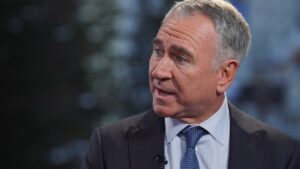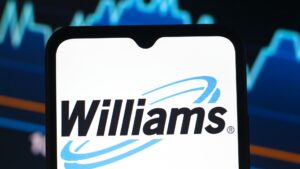A company crackdown on unvaccinated workers could be coming, in the form of more mandates and more financial penalties, a new survey suggests.
One week after Delta Air Lines
DAL,
announced a $200 monthly surcharge on unvaccinated workers, the Willis Towers Watson survey of 961 companies says 17% of those polled are eyeing that route as well.
The human resources consulting firm survey suggests there’s a hardening approach from employers as they try to strike a balance between retaining staff, and also keeping their workforce healthy while the delta variant sends COVID-19 cases surging.
At the same time, more cities, including New York City and San Francisco, are setting rules requiring customers at indoor venues such as bars, restaurants and gyms to show proof of vaccination to get inside.
“We have reached a point in the pandemic where employers that have worked hard to make it easy for employees to get vaccinated are also considering approaches to make it more difficult for employees to remain unvaccinated,” said Dr. Jeff Levin-Scherz, population health leader at Willis Towers Watson
WLTW,
“
‘Employers that have worked hard to make it easy for employees to get vaccinated are also considering approaches to make it more difficult for employees to remain unvaccinated.’
”
— Dr. Jeff Levin-Scherz, population health leader at Willis Towers Watson
Approximately 1% of companies are already applying surcharges on the health care premiums of unvaccinated workers, and another 1% are planning how and when to implement the surcharges.
At the same time, 3% of the companies polled — which collectively employed some 9.7 million people — say they are giving discounts on health-care premiums for vaccinated staff and 12% are considering the idea.
When Delta
DAL,
CEO Ed Bastian announced the company’s surcharges, which begin Nov.1, his memo noted the company has been spending an average $50,000 in health-care costs when unvaccinated staff was hospitalized with the virus. Beginning Sept. 12, unvaccinated Delta Air Lines staff will have to undergo weekly testing, Bastian noted.
The Willis Towers Watson survey says financial penalties appear to be gaining more momentum to persuade staff to get vaccinated — perhaps working off the psychology of an aversion to lost money.
“
As of Tuesday, just over 74% of the adult population had at least one shot and 63.5% were fully vaccinated, according to the Centers for Disease Control and Prevention.
”
By the fourth quarter, more than half (52%) the companies said they would either have some type of vaccination mandate in place, be planning one or considering the idea. That’s up from 29% in the third quarter, and 9% of companies surveyed in the spring.
Other surveys show a growing willingness among company management to add some type of mandate to its company policy. For example, just 0.5% of employers in January told Littler Mendelson, a law firm representing employers, they were mandating vaccination.
By August, 9% were either making the requirement or planning one for a portion of staff, according to the Littler Mendelson poll.
The latest look at company attitudes on mandates comes at a time when at least one gauge on public opinion shows vaccine hesitancy slipping. Fresh after the FDA’s full approval of the Pfizer/BioNTech
PFE,
BNTX,
vaccine, an Axios/Ipsos poll showed the number of reluctant Americans shrinking to 20%, down from 23% two weeks earlier and 34% in March.
As of Tuesday, just over 74% of the adult population had at least one shot and 63.5% were fully vaccinated, according to the U.S. Centers for Disease Control and Prevention.
If the Willis Towers Watson survey is any indication, more employers will be seeking proof instead of taking workers at their word that they got their shots.
When determining vaccination status, almost two-thirds (62%) said they are asking for proof like a filled out CDC vaccination card. That’s up from 56% the spring.
This post was originally published on Market Watch






